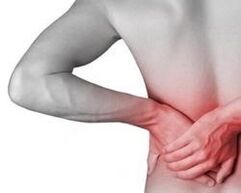
Prostatitis is an inflammatory process that develops in the prostate. In theory, everyone is at risk of developing it regardless of age.
But men are most susceptible to diseases affected by the following factors:
- A sedentary lifestyle;
- Long-term sexual restraint, or conversely, an overactive sex life;
- Constipation often. Please note that only regular bowel movements can cause prostatitis, not constipation.
- Low temperature. In order to develop prostatitis, it is not necessary to swim in ice water for several hours, just sit on a cold stone or wear inappropriate clothes for a long time in the cold is enough;
- Chronic inflammatory diseases (for example, chronic bronchitis) or untreated human infections (caries, tonsillitis);
- Chronic and acute urinary system diseases or previous venereal diseases (urethritis, gonorrhea);
- Sedentary work. First, these people are forced to sit and work constantly, without the opportunity to get up and warm up (drivers, computer operators);
- Any disease that suppresses the human immune system. These include undernutrition or undernutrition, physical and emotional overload, persistent lack of sleep, chronic stress).
If a man is over 50 years old, all of the above factors can become particularly dangerous. In fact, at this age, the hormonal background has undergone significant changes, immunity is reduced, and various diseases have appeared. In addition, men at this age rarely lead an active lifestyle. For these reasons, all men over the age of 50 must undergo a preventive examination by a urologist every six months.
How did the disease start?
Usually, the first sign of prostatitis is unpleasant or even painful urination. Sometimes you have to get up several times a night to go to the toilet. At this stage of disease development, few people go to see a doctor, although treatment at this stage is short-lived and effective.
After a period of time, the pubic bone or perineum appears sharp cutting, pulling or shooting pain, and sometimes the pain spreads to the penis or anus. Urination becomes frequent and painful, and the urine becomes more cloudy. Pain may occur during bowel movements.
In addition, the body temperature will rise, and sometimes men will notice the release of translucent white liquid drops from the urethra. Usually, most men see a doctor during their illness.
What happens if prostatitis is not treated?
If you do not consult a doctor and start treatment after the above symptoms appear, the disease will progress further. The temperature may rise to 40 degrees, the pain becomes very severe, urination becomes very painful, and the flow of urine is disturbed (the urine flows out of the urethra very thinly or drop by drop). The longer the prostatitis is not treated, the higher the possibility of acute urinary retention and acute renal failure. In addition, because cystitis and prostate cancer also have symptoms similar to prostatitis, they must be checked in time.
Diagnostic procedure
After contacting the urologist, the prostate passing through the rectum will be studied and the secretions of the prostate will be analyzed. This process is not very pleasant and sometimes painful, especially in the late stages of the disease. Sometimes it is precisely because of this that men do not want to see a doctor.
But in fact, the earlier the exam, the less pain. In addition, palpation of the prostate itself is already a treatment method because it helps to eliminate congestion.
In the laboratory, the secretions of the glands are sown on a nutrient medium to determine the sensitivity of the flora to antibiotics and perform urinalysis. Ultrasonography is also performed to confirm the diagnosis. For urologists, the treatment of prostatitis is usually not difficult as long as the treatment is carried out in time.
The early stages of prostatitis are treated at home. Prescribe antibacterial drugs, baths, compresses and other hyperthermia procedures, as well as painkillers and prostate massage agents in the perineum. The treatment takes about 10 days. During treatment, you should not eat spicy food and alcohol.
Signs and treatment of chronic prostatitis
In chronic prostatitis, the pain in the perineum will be relieved after walking or light exercise, and there will be a burning sensation when urinating. A person often sleeps well and becomes irritable.
If left untreated, chronic prostatitis can cause pelvic inflammatory disease and even infertility. Reflexology and prostate massage have also been added to the above treatments. It is recommended that patients adopt a more active lifestyle and exclude spicy food and alcohol from their diet.
Trust doctor
You should not try to diagnose yourself without seeing a doctor. After all, only a urologist can choose the best treatment plan for you based on the test results.
When self-medication, you "blindly" take antibiotics. This may cause the disease to turn into a chronic form. If the disease continues to progress, hospitalization may be required. In the hospital, the treatment process will last 1-2 weeks, or even longer.
To prevent complications, please make sure to be checked by a urologist every six months.
prevention
Prevention of prostatitis can be boiled down to the following recommendations:
- If you want to go out in cold weather for a long time, please choose suitable clothes;
- Eat regularly;
- Lead an active lifestyle and participate in sports;
- Use laxatives for constipation;
- Regular sex life is best with a regular partner.
Many men suffer from prostatitis. This article provides basic information about the disease and explains why it is necessary to visit the urology department regularly.



























